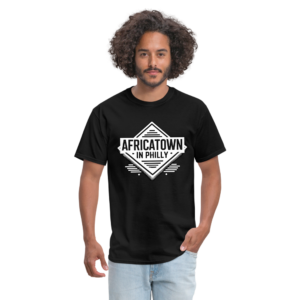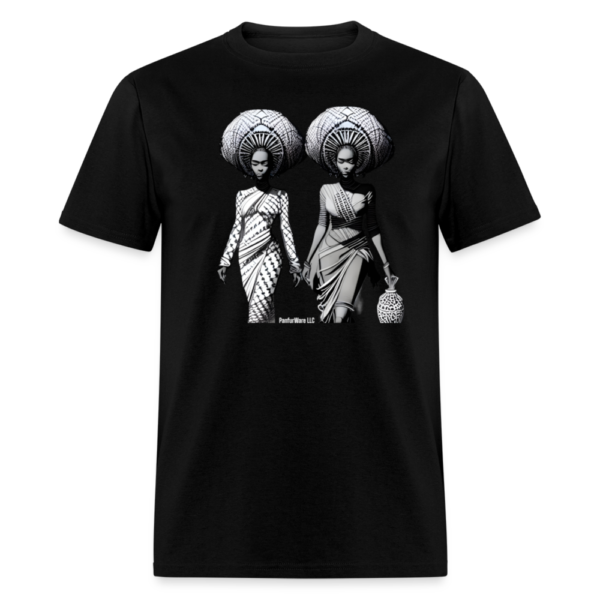Your cart is currently empty!
Chris Rock’s Hilarious Truth: Elon Musk, The World’s Richest African American
Free shipping over $50 for the month of April using code aprilship
Comedy often has a way of exposing truths in the most unexpected ways. One such moment occurred when iconic comedian Chris Rock humorously referred to Elon Musk as the world’s richest African American. While the comment is undeniably funny, it also highlights some intriguing layers about identity, success, and cultural perspectives.
The Context of the Joke
Chris Rock, known for his sharp wit and incisive observations about race and society, made the quip during his monologue on SNL. At first glance, it seems like a lighthearted take on Musk’s South African origins. However, the underlying layers of this comment prompt us to think about broader issues like the intersections of nationality, ethnicity, and cultural identity.
Elon Musk, born and raised in Pretoria, South Africa, is a quintessential example of a global citizen. He moved to the United States in pursuit of education and opportunities, eventually becoming a tech titan and the world’s richest individual. While “African American” is often associated with the descendants of enslaved Africans in the United States, Musk’s literal African roots and American citizenship technically make the label accurate—albeit in an unconventional sense.
The Humor in Truth
The brilliance of Chris Rock’s joke lies in its dual impact. It elicits laughter while also making audiences pause and reflect. The humor stems from the cognitive dissonance of hearing Musk, a white billionaire, referred to as “African American,” a term predominantly tied to Black identity and history in the United States. Rock’s observation challenges the audience to think about how we define identity and the cultural weight of labels.
This moment underscores the role of comedy in sparking conversations that might otherwise feel uncomfortable. By reframing a complex topic with humor, Rock invites his audience to engage with it in a more accessible way.
Elon Musk: A Global Icon
Musk’s journey from Pretoria to Silicon Valley epitomizes the idea of the American Dream, albeit on a global scale. After attending the University of Pretoria, he transferred to the University of Pennsylvania, eventually making his mark in tech industries like PayPal, Tesla, SpaceX, and Neuralink.
His South African upbringing and subsequent American success story make him a unique figure in discussions about identity. Musk identifies as white and has not publicly embraced the African American label in the cultural sense. However, his South African heritage is an inextricable part of his story, shaping his early experiences and worldview.
Cultural Identity and the Power of Labels
Rock’s joke also sheds light on the complexities of cultural identity. In the United States, “African American” is more than a descriptor of geographical origin; it’s a term deeply rooted in a specific historical and social context. For many, it represents a shared heritage, resilience, and the ongoing struggle for racial equality.
Musk’s presence in this narrative complicates these associations. While he is African by birth and American by citizenship, his experience is worlds apart from that of most African Americans. This distinction highlights the limitations of labels and the importance of understanding the stories behind them.
The Broader Implications
Chris Rock’s observation also opens up discussions about representation in wealth and power. The world’s richest individuals—including Musk—are predominantly white men, highlighting persistent inequalities in access to resources and opportunities.
In contrast, the economic challenges faced by many African Americans in the United States underscore systemic barriers that have yet to be fully dismantled. Rock’s joke, though humorous, underscores the glaring disparities in wealth distribution and representation.
Musk’s Response and Public Perception
Although Musk hasn’t publicly commented on Chris Rock’s remark, his public persona suggests he’d likely take it in stride. Known for his humor and sometimes controversial Twitter presence, Musk often engages with pop culture references to his life and career.
Public reactions to Rock’s joke have ranged from laughter to deeper conversations about identity and privilege. Some have praised the comedian for using humor to highlight societal nuances, while others have critiqued the oversimplification of complex topics. Regardless, the viral nature of the remark has kept Musk’s name—and by extension, conversations about identity—in the spotlight.
Lessons from Laughter
Chris Rock’s quip serves as a reminder of comedy’s ability to illuminate societal truths. By pointing out the unexpected intersection of Elon Musk’s identity and success, Rock encourages audiences to question assumptions and broaden their understanding of labels.
As global cultures continue to intersect, discussions about identity will only grow more complex. Rock’s humor demonstrates the importance of approaching these conversations with both curiosity and a willingness to laugh at life’s contradictions.
Conclusion
Chris Rock’s humorous observation about Elon Musk being the world’s richest African American is more than just a punchline. It’s a springboard for discussions about identity, privilege, and the power of comedy to challenge societal norms. While Musk’s journey from South Africa to global prominence is uniquely his own, the layers of meaning behind Rock’s joke resonate far beyond the stage.
As we navigate a world where identities are increasingly multifaceted, moments like this remind us of the importance of laughter in bridging divides and fostering understanding. Whether you’re here for the humor or the deeper insights, one thing is clear: comedy has a way of bringing truth to light—one punchline at a time.
Twin Black African Women Unisex Classic T-Shirt
Double the style and double the fun with the Twin African Women Unisex Classic T-Shirt! Celebrate sisterhood and uniqueness while looking fabulous—because two is always better than one!
-

Hungry and Humble Football Player Flapping Arms Touchdown Celebration Unisex Classic T-Shirt #philly
$19.99 Select options This product has multiple variants. The options may be chosen on the product page -

Africatown in Philly Phrase Unisex Classic T-Shirt
$13.99 Select options This product has multiple variants. The options may be chosen on the product page -

Vintage Funny Cat Selfie UFO Alien Invasion Unisex Classic T-Shirt
$13.99 Select options This product has multiple variants. The options may be chosen on the product page -

Vintage Philly Underdogs German Shepherds Unisex Classic T-Shirt
$9.99 Select options This product has multiple variants. The options may be chosen on the product page -

Voxel Art Style Test Day Kids’ T-Shirt
$14.99 Select options This product has multiple variants. The options may be chosen on the product page
————————————————
We use AI GPT Chatbots to help with our content and may get some things wrong.
————————————————-






 Why We Love PinkPantheress’s Unique Production Style: The Future of Music Vibes
Why We Love PinkPantheress’s Unique Production Style: The Future of Music Vibes
